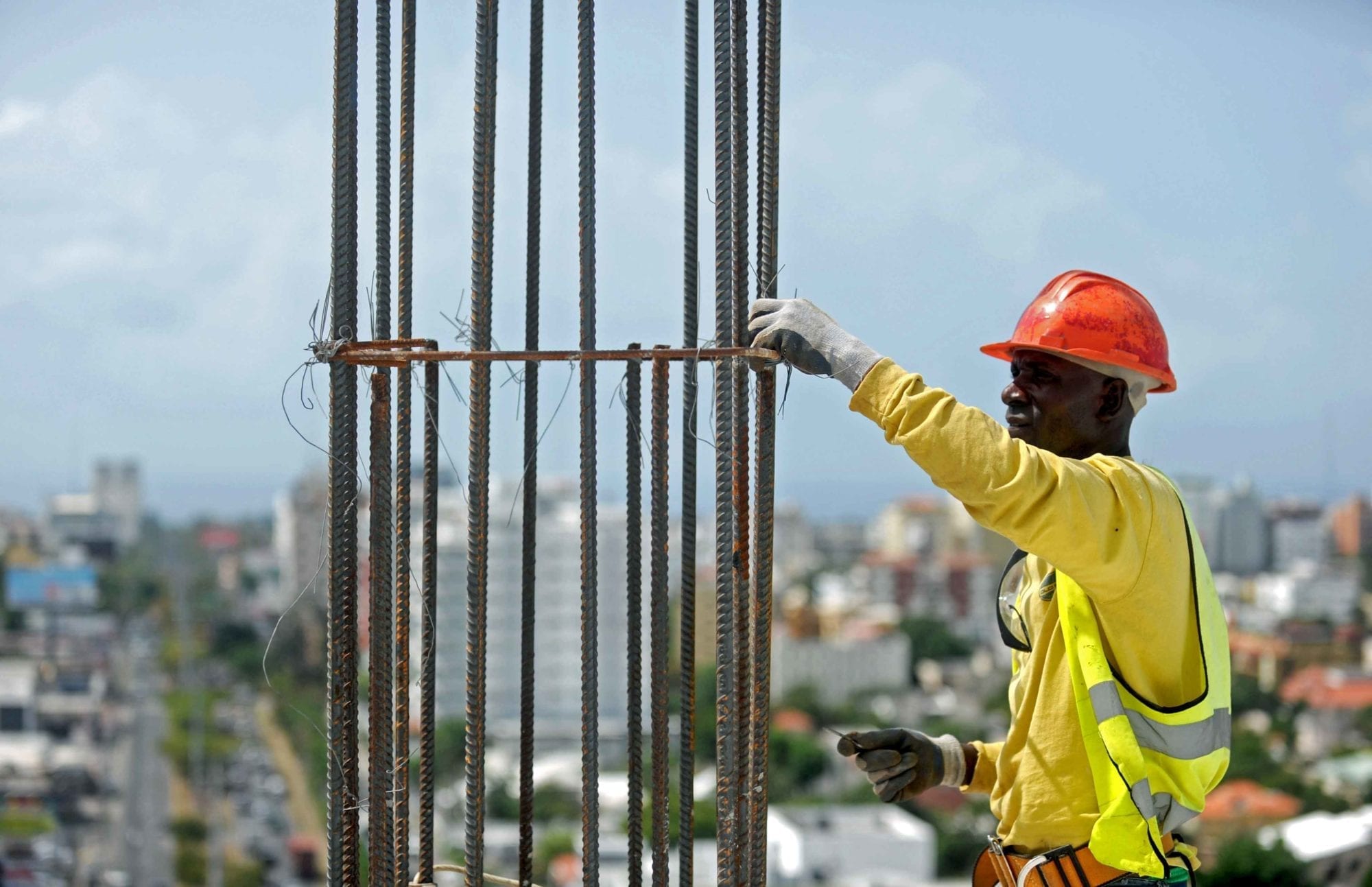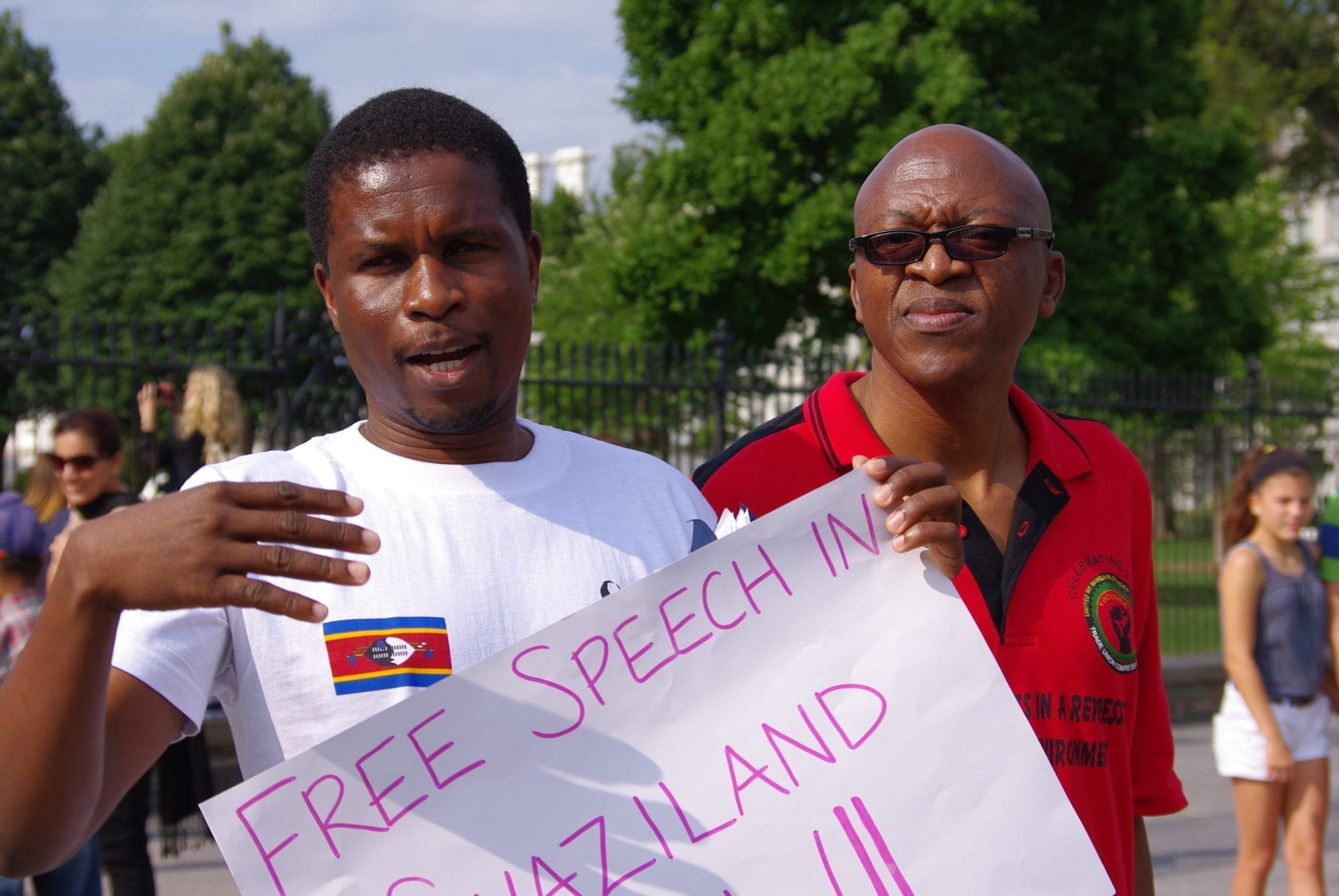
Sep 5, 2014
The Dominican Republic’s “regularization” plan—created to provide legal status to migrants with documents—is rife with “irregularities,” according to Alexis Roselie, spokeswoman for the National Coordinator for Immigration Justice and Human Rights and an organizer for the National Federation of Workers in Construction and Building Materials (FENTICOMMC).
At a press conference this week at the National Confederation of Union Unity (CNUS), Roselie said that “after three months of execution of the plan … only 19 offices of the 31 previously announced offices are functioning.” Roselie referred to offices the Dominican government recently opened around the country to receive applications from migrants to legalize their status.
She says regular bureaucratic processes are being set aside and applicants are not receiving proper documentation of their interactions with the relevant agencies.
“We have proof there are people who meet all the basic requirements of the National Plan for Regularization of Foreigners (PNRE) and each time they go back to the offices, they are always told they are lacking one document or another,” Roselie said. Tens of thousands of migrant workers, primarily Haitians, toil in the Dominican Republic as domestic workers, sugarcane harvesters and construction workers.
CNUS President Rafael is bringing the groups concerns today in a meeting with Dominican Republic President Danilo Medina.
The National Coordinator for Immigration Justice and Human Rights is a network of 16 organizations, including CNUS, FENTICOMMC, the Association of Domestic Workers, the National Federation of Market Vendors and other unions and grassroots migrant community organizations. The coordination of these organizations emerged from an advocacy training by the Solidarity Center in July 2014.
Haitian and Dominican rights activists also said some local agencies charge exorbitant fees to provide documents necessary for applicants to demonstrate long- term residence, despite the government’s claims that the process is free of charge. They say some migrants have waited two months for notification of the results of their applications, even though the law stipulates a response within 45 days.
Rosalie added, “Out of 60,000 people who have gone to remedy their undocumented status, only 200 have completed the process and we have heard of no one who has received a definitive answer.”

Sep 2, 2014
A panel of federal judges in Mexico dropped all criminal charges against Napoleón Gómez Urrutia, president and general secretary of the National Mine and Metal Workers Union (Los Mineros), freeing him to return to Mexico from Canada where he has lived in exile.
Gómez Urrutia, who was removed as president of the 250,000-member union by Mexican authorities and replaced with a company-backed rival, was repeatedly threatened and forced to leave Mexico in 2006. He also was charged with embezzling $55 million in union funds, an accusation struck down multiple times by the country’s courts. Following the August 28 decision, Gómez Urrutia said through Los Mineros that he plans to return to Mexico by the end of September.
Los Mineros said in a statement that “the next step will be to meet with the highest levels of government” so that Gómez Urrutia and Los Mineros can “contribute, in a framework of mutual respect, to the development of the industry and the defense of the rights of the workers and the well-being of their families.”
Days before he was removed as Los Mineros leader, an explosion at Grupo Mexico’s Pasta de Conchos mine trapped 65 mineworkers. Gómez Urrutia said the company and Mexican government only made minimal efforts to rescue the trapped men. The search for survivors was ended and the mine closed after five days, leaving the men entombed and their families waiting outside.
Prior to the explosion, Los Mineros had repeatedly cited dangerous working conditions and the smell of gas at Pasta de Conchos. After the company abandoned the men and sealed the mine, Gómez Urrutia publicly accused the mining company and the Ministry of Labor of “industrial homicide.” In response, the government filed criminal charges against Gómez Urrutia and other union leaders, froze the union’s bank accounts, assisted employers to set up company unions in Los Mineros-represented workplaces, declared the union’s strikes illegal and sent in troops to suppress them.
In 2011, Gómez Urrutia received the AFL-CIO George Meany-Lane Kirkland Human Rights Award, with AFL-CIO President Richard Trumka calling Gómez Urrutia a “truly courageous man who has shown us how difficult and how important it is to be an independent leader of a democratic union.” He also won the 2014 Arthur Svensson Prize granted to individuals or organizations working to promote trade union rights and/or strengthen trade union organizing around the world.
The AFL-CIO, the United Steelworkers and IndustriAll were among union organizations worldwide backing Gómez Urrutia and providing an international platform to champion his innocence.
Gómez Urrutia described the struggle by Mexico’s mineworkers for safety and health protections, decent wages and improved working conditions in his 2013 book, Collapse of Dignity, The Story of A Mining Tragedy and the Fight Against Greed and Corruption in Mexico. Collapse of Dignity details the February 2006 mine disaster and the subsequent attacks on him and Los Mineros. Most of the victims were temporary contractors with no training and insufficient oxygen supplies.
Aug 18, 2014
When 1,300 Bangladeshi garment workers started to organize a trade union at their factory in the Gazipur suburb of Dhaka, the capital, they faced an uphill battle.
However, with assistance from their union federation, the Bangladesh Independent Garment Workers Federation (BIGUF) and the Solidarity Center, and by working to develop a constructive relationship with their employer, Masco Cotton, both sides have been able to sit down and negotiate and resolve issues in the factory. And the dynamics have changed.
“I am very happy that we have established a good relationship with our employer, but it hasn’t been a smooth path,” said Faruk, president of the Masco Cotton Ltd. Workers Union. “At first, I was suspended along with three other workers for trade union activity, and it was two and a half months before we were reinstated.”
Faruk continued, “It took a lot of hard work for us to make the employer understand our problems. The training we received from BIGUF helped a lot. They trained us how to talk to and negotiate with the management.”
Sanjida Akhter, worker and president of Masco Industries Ltd. Workers Unity Union (one of the three union factories affiliated with BIGUF in the five-factory group) said, “Before we formed a union in our factory, (the workers) had no way to communicate with our employer. But now things are different. Management will even approach the union to work out and discuss issues in the factory.”
Through the process of negotiation, workers in the union factories have bargained with their employer to ensure they receive their salaries on time, and to increase attendance and other bonuses as well as night-shift differentials. The unions and management now meet monthly to discuss routine labor disputes and other issues. For example, they met most recently to negotiate leave for the religious holiday Eid and to increase the number of fans on the factory floor.
“Though the workers now have built a much more positive relationship with the employer, initially we had some serious challenges,” said Raju, acting general secretary of BIGUF. He said that despite some workers losing their jobs and one of the union applications being rejected three times before it was registered by the Joint Director of Labor (JDL), they worked hard to demonstrate to the employer that worker empowerment through a trade union could be beneficial for the factory overall if both sides sat down and negotiated.
Mahbubul Alam, executive director of the Masco factory group said, “There is a prevailing negative opinion about trade unions among employers … but it can be beneficial for both the workers and the employer when we work with the unions. If we want to ensure harmony in the factory, we need to maintain a good relationship with workers—and we took this on as a challenge. If we can do it, we can be an example to other RMG (ready-made garment) factories in Bangladesh.”
Mahbubul says that training for both the management and the union can play an important role in developing a constructive relationship and maintaining industrial peace.
“The potential benefit of having a union in the factory is that we hear the voice of all the workers. Management can then understand the workers’ issues and work to solve those problems,” he said.

Aug 15, 2014
U.S. trade benefits for Africa—known as the African Growth and Opportunity Act (AGOA)—provide key economic support for countries such as Swaziland, according to Vincent Ncongwane, secretary general of the Trade Union Confederation of Swaziland (TUCOSWA).
Yet some in the Swazi government are falsely accusing Ncongwane and human rights lawyer Sipho Gumedze of taking a stand against AGOA benefits for Swaziland when they were in Washington, D.C., last week as part of a delegation of 40 African trade union leaders. In June, the U.S. government took the rare step of suspending AGOA trade benefits for Swaziland, citing the Swazi government’s systematic violations of fundamental worker rights.
“We maintain our position that we want the country to regain eligibility but it must meet the benchmarks,” Ncongwane said today in a press statement. “As we stated in the U.S. and heard clearly stated to us there, (the United States) does not wish to keep Swaziland outside the AGOA program, but eligibility remains for the (Swazi) government to take the necessary steps. It has been emphasized over and over again that all (the Swazi) government has to do is to meet the requirements of the benchmarks.”
While in Washington, Ncongwane and Gumedze, both internationally respected labor and human rights advocates, the Swazi Prime Minister Sibusiso Dlamini reportedly told lawmakers “you must strangle them” upon their return. The U.S. State Department condemned the threat, saying in a statement:
“The United States is deeply concerned by the threatening remarks made by Swaziland Prime Minister Sibusiso Barnabas Dlamini toward Swazi labor and civil society leaders who participated in the U.S.-Africa Leaders Summit in Washington this week. Such remarks have a chilling effect on labor and civil rights in the Kingdom of Swaziland.”
“The comments made today by Prime Minister Dlamini are a clear threat to the human rights community,” said Santiago Canton, Director of RFK Partners for Human Rights. “This type of language is another indication that Swaziland’s authorities do not, in any way, respect the basic human rights of its people.”
Following the statements from the United States, and international outrage within the global labor and human rights communities, Dlamini later reportedly retracted his statement.
When the United States suspended AGOA benefits in June, U.S. Trade Representative Michael Froman, said, “We have made our concerns very clear to Swaziland over the last several years and we engaged extensively on concrete steps that Swaziland could take to address the concerns. We hope to continue our engagement with the Government of the Kingdom of Swaziland on steps it can take so that worker and civil society groups can freely associate and assemble and AGOA eligibility can be restored.”
The 2014 U.S. State Department human rights report cites serious human rights violations in Swaziland, including arbitrary or unlawful killings by the government or its agents; severely restricted freedom of assembly, including violence against protestors; jailing of trade union leaders; the deregistration of TUCOSWA and the banning of strikes.
A recent TUCOSWA survey of more than 400 textile workers in Manzini, Swaziland, found that workers in the textile sector are subject to harsh and sometimes abusive conditions, many of the country’s labor laws are routinely violated by employers, and union activists are targeted by employers for punishment.
In July, ITUC General Secretary Sharon Burrow said although Swaziland was aware of the potential withdrawal of U.S. trade benefits, “the government made no genuine effort to fulfill the eligibility criteria by May 15, 2014, the deadline set by the U.S. Trade Representative. The inaction is evidence of the government’s complete disregard for the rights and livelihoods of workers.”
Aug 12, 2014

Solidarity Center Africa Regional Program Director Imani Countess Credit: Tula Connell
The U.S.-Africa Summit in Washington, D.C., last week stood apart from similar trade and investment meetings held by China or by the European Union because African union leaders, representing millions of working people, made their voices heard, said Imani Countess, Solidarity Center regional program director for Africa.
“Any U.S. conversation discussing economic development, trade and investment in Africa couldn’t happen without … people understanding how foundational decent work, labor rights … are to overall growth and economic development,” Countess said, speaking on RadioLabour.
The Solidarity Center and the AFL-CIO facilitated meetings, held in tandem with the U.S.-Africa Summit, that included nearly 40 union leaders from 11 countries to highlight the need for good jobs as a priority in trade and investment decisions.
“As one is looking at promoting investment in Africa, that investment has to be pro-employment, as opposed to the continued emphasis and support for growth that is benefiting a very small minority,” Countess said.
Listen to the full interview.




